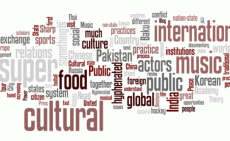The CPD Blog is intended to stimulate dialog among scholars and practitioners from around the world in the public diplomacy sphere. The opinions represented here are the authors' own and do not necessarily reflect CPD's views. For blogger guidelines, click here.
Over the past ten years since 9/11, event after event in and outside Afghanistan has overshadowed the need to connect with the Afghan people and to deliver on their basic expectations for peace, justice, and prosperity. Even though NATO member-states increasingly appreciate the importance of public diplomacy at home and abroad, they have largely faltered to engage and listen to the Afghan people on how to secure Afghanistan.
China’s quest for “soft power” in recent years is a direct consequence of its dramatic economic transformation over the last several decades. It is now an all-too-familiar story of how China is vigorously pursuing image-building efforts, from the global expansion of its media properties to the rapid growth of the Confucius Institutes. This has become particularly poignant at a time when, in stark contrast, the U.S. public diplomacy enterprise is facing shrinking budgets.

Craig Hayden on hyphenated diplomacy, globalization and international relations.
How country music shapes America's brand status.
APDS Blogger: Candace Burnham
I’ve been thinking a lot lately on what influences us. Day to day we each have our routines and along the way are bombarded by images, messages, and endless information. But what breaks through the information overload and influences us? What captures our attention, our imagination and ultimately lodges itself in our memory? Maybe I’m paying closer attention to the details of everyday more acutely after reading Joe Nye’s latest book The Future of Power.
“Five million Kurds in Iraqi Kurdistan have become a beacon of light for the 35 million Kurds who live in Turkey, Syria, and Iran. That beacon of light is keeping us awake at night and is filling our hearts with hope.”
-Kani Xulam, Director of the American-Kurdish Information Network
APDS Blogger: Carolina Sheinfeld
As part of my duties of outreach coordinator, since 2004 I participate at local forums hosted by the U.S. Citizenship and Immigration Services (USCIS). In Los Angeles, USCIS conducts two regular monthly meetings: the Adjudications Information Forum (AIF) and the Naturalization Advisory Committee (NAC). Advocates attending these meetings are members of community-based, faith-based and ethnic-based organizations; ESL teachers; volunteers; members of expats associations and NGO employees like myself.
Pages
Visit CPD's Online Library
Explore CPD's vast online database featuring the latest books, articles, speeches and information on international organizations dedicated to public diplomacy.
POPULAR ARTICLES
-
January 29
-
January 20
-
December 17
-
January 28
-
December 15
Featured Blogger
Join the Conversation
Interested in contributing to the CPD Blog? We welcome your posts. Read our guidelines and find out how you can submit blogs and photo essays >.








